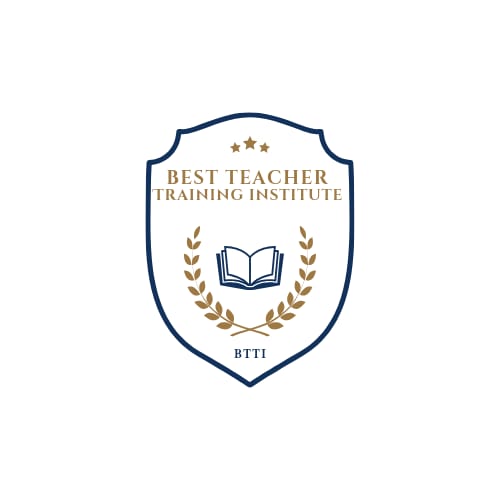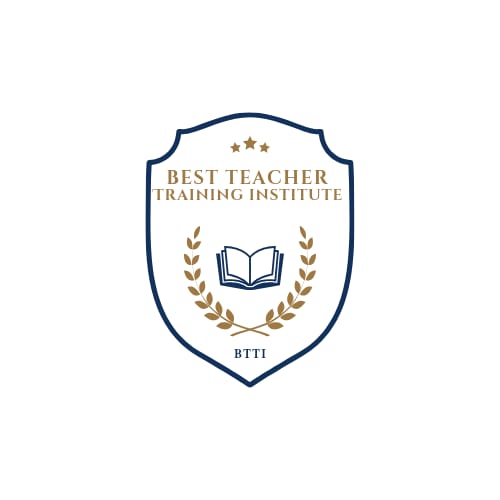Early Years Foundation Stage Level 3
Best Teacher Training Institute
Contect us +91-9833119953
"What is EYFS"
EYFS means Early Years Foundation Stage.
The EYFS is a statutory framework that sets standards for the care, development, and learning of children from birth to five years old. It was introduced in response to research that showed the importance of good quality childcare in supporting children's development and learning.
The EYFS framework focuses on three key areas of learning:
Communication and Language
Physical Development
Personal, Social, and Emotional Development.
The EYFS framework encourages a mix of adult-led and child-initiated activities, and learning through play is an essential part of the framework.
What are the 7 stages of EYFS?
Early years foundation stage
Communication and language.
Personal, social and emotional development.
Physical development.
Literacy.
Mathematics.
Understanding the world.
Expressive arts and design.
What is the EYFS method of teaching?
The EYFS framework recognises that children need to be able to use concrete experiences to provide the building blocks for their learning. Based on this, the learning ethos behind the EYFS framework encourages learning through a mix of play-based and adult-led learning.
What are the three main areas of the EYFS?
The three Prime areas, Personal, social and emotional development (PSED), Communication and language (CL), and Physical development (PD), describe universal core aspects of early child development.
What is the age range for EYFS?
The Early Years Foundation Stage (EYFS) outlines what adults must do to help children learn and develop and to be healthy and safe. This guide is for parents* of children from birth to five years old. It will help you find out more about your child's learning and development in the EYFS.
What is the method of teaching in EYFS?
Based on this, the learning ethos behind the EYFS framework encourages learning through a mix of play-based and adult-led learning. Adults working in early years support children's learning and development through methods, such as discussions, modelling, and direct and indirect teaching.
Who Is This Course For?
This EYFS Teaching Certificate is ideal for anyone who wants to:
● Gain a formal, accredited qualification to fast track their career
● Learn more about the Early Years Foundation Stage (EYFS)
● Test their skills and knowledge to become a more competent professional
● Improve their knowledge as a parent
● Career Path
Duration: 1 Year
Eligibility: 12th Grade
EYFS Candidates Can Become
● Homeroom Teacher
● Assistant Teacher
● Centre Head
● Primary School Teacher
● SEN Teaching Assistant
● SEN Teacher
Course Curriculum
Module 1: Introduction to the Early Years Foundation Stage (EYFS)
Module 2: Importance of Early Years Development
Module 3. EYFS Teaching Techniques
Module 4. Working as an EYFS Teacher
Module 5. Promoting Learning & Development
Module 6.Children Having Special Education Needs or Disabilities
Module 7. Parents' Guide to the Early Years Foundation Stage
Module 8. Welfare Requirements
Module 9. The EYFS Educational Philosophies and Privileges
Module 10. Registration, Inspection, and Quality Improvement
Module 11. EYFS Framework in 2021
EYFS Teaches :
1. The Four Guiding Principles
2. The Areas of Learning & Development
3. The Prime Areas- Communication and Language
4. Physical Development
5. Personal, Social and Emotional Development
6. Literacy
7. Mathematics
8. Understanding the world
9. Expressive Arts and Design.
10. Responsibilities of an EYFS teacher
11. Early Learning Goals (ELGs)
12. The EYFS Teaching Techniques
13. Working as an EYFS Teacher
14. Presentation of Exercises from the 5 Areas.
15. Analyse the principles underpinning EYFS
16. Outline the EYFS practitioners' roles and responsibilities
17. Discuss how the educational environment and equipment can be affected by EYFS
18. Describe the key principles of EYFS guidance
19. Recognise the early learning goals for children
20. Explain the various teaching strategies for preschoolers according to the EYFS framework
Montessori Teachers Training Course:
If you're interested in becoming a Montessori Teacher, pursuing Montessori training can open doors to a fulfilling career in early childhood education. With a Montessori Teacher Training Course, you can find opportunities in esteemed preschools worldwide.
In the Montessori method, practical life, math, language, and sensorial are areas of learning that help children develop independence, social skills, and an understanding of their environment:
Practical life
Helps children develop independence and social skills by teaching them how to interact with their environment. Activities include preparing snacks, cleaning tables, dressing, grooming, hand washing, gardening, and caring for pets.
Sensorial
Helps children develop an understanding of their environment by sharpening their abilities in sight, touch, smell, taste, and sound. Activities include exploring colours, shapes, textures, weights, and dimensions.
Math
Helps children learn numbers, quantities, counting, addition, subtraction, multiplication, and division. Activities include using number rods, sandpaper numbers, number boards, number beads, and tiles.
Language
Helps children develop oral language, phonics, letter formation, sentence structure, vowels and consonants, writing, reading, and early literacy skills. Activities include listening for common sounds, learning letter shapes and sounds, and naming or matching words to objects and pictures.
Cultural studies
Children learn about the world around them, including geography, history, science, art, and music.
Each area of study is made up of a set of educational materials that increase in complexity.
Montessori teachers guide students in learning traditional school subjects and life skills, while also supporting their self-development. The Montessori method is based on the belief that all children are unique and have immense potential. Montessori teachers are trained to:
Observe: Carefully and unobtrusively observe children's development
Recognize and interpret needs: Recognize and interpret each child's needs
Provide a link: Introduce children to equipment in a clear and enticing way
Montessori teachers guide students through the learning process by using materials that fit their specific needs and pace. Montessori education encourages self-directed learning that promotes: self-confidence, independent thought and action, critical thinking, and social-emotional and intellectual growth.
Montessori education is characterised by:
Hands-on learning
Collaborative play
Respect
Prepared environment
Discovery
Imagination
Freedom of choice
Independence
The Montessori Method focuses on fostering self-confidence, independence, and self-esteem in children. As a result, Montessori training continues to gain popularity globally.
How to Become a Montessori Teacher
The Montessori course is offered both online and distance-mode options for Montessori Teacher Training, making it accessible for individuals in various locations. With this diploma, you can explore multiple rewarding roles in early childhood education.
Common FAQs about Becoming a Montessori Teacher:
What can I do with a Montessori Qualification?
A Montessori qualification equips you for various career roles, such as:
1. Montessori Teacher – Teach in well-regarded preschools.
2. Classroom Assistant – Support lead teachers in classroom activities.
3. Special Needs Support Teacher – Provide individualised attention for children with special needs.
4. Shadow Teacher – Focus on supporting a particular child, if needed.
5. Course/Curriculum Planner – Develop activities, plan modules, and set up Montessori classrooms.
6. Montessori School Supervisor or Preschool Principal – With experience, advance to administrative roles or even establish your own preschool.
Can I do a Montessori Course Online?
Yes, Montessori Teacher Training through both online and distance modes, ideal for those unable to attend in person. The course includes flexible enrollment & easy admissions.
Why Choose a Montessori Course?
Montessori Training Course is highly rated for its practical, assignment-based curriculum & job-oriented certification.
What is Montessori Teacher Training?
Montessori teachers help children develop independence, self-regulation, and social skills in a variety of ways, including:
Creating a supportive environment
Montessori teachers create a classroom that's safe, clean, and stimulating, and that encourages children's natural curiosity.
Providing a variety of materials
Montessori classrooms have a wide range of materials to help children develop literacy, mathematical understanding, and sensory perception.
Encouraging independent exploration
Montessori teachers give children choices among hands-on activities that match their age and ability.
Working with individuals and small groups
Montessori teachers work with children individually or in small groups, while the rest of the class works independently.
Promoting social development
Montessori teachers promote social development through clear communication, respectful interactions, and natural consequences.
Instilling values
Montessori teachers set an example for students by instilling values like kindness, tolerance, and honesty.
Montessori teachers are trained to observe children, recognize their needs, and provide a link to equipment. They also develop lesson plans, curricula, and methods that cater to each child's individual needs.
Montessori training is based on Dr. Maria Montessori’s educational philosophy.
What are the Qualifications to Become a Montessori Teacher?
To enroll in Montessori Teacher Training, candidates typically need at least a high school diploma or an equivalent (10+2) with 50% aggregate marks.
How Long is a Montessori Course?
The standard Montessori certificate takes approximately one year, while the Postgraduate Diploma requires two years.
How Much Do Montessori Teachers Earn?
Montessori teacher salaries vary based on location. In remote areas, salaries may start around INR 12,000–18,000 per month, while city-based positions typically offer INR 16,000–28,000 per month.
Do You Need a Degree to Teach Montessori?
1. 12th grade for doing certificate course
2. Graduation for Postgraduate Diploma programs
Other Teacher Training Courses
Nursery Teacher Training (NTT)
Pre-Primary Teacher Training (PPTT)
Jolly Phonics Teacher Training
Educational Management
Assistant Teacher Training
Shadow Teacher Training
Child Psychology
Curriculum Planning
Guidance & Counselling
Life Coach
Handwriting
Letter Formation
Storytelling



